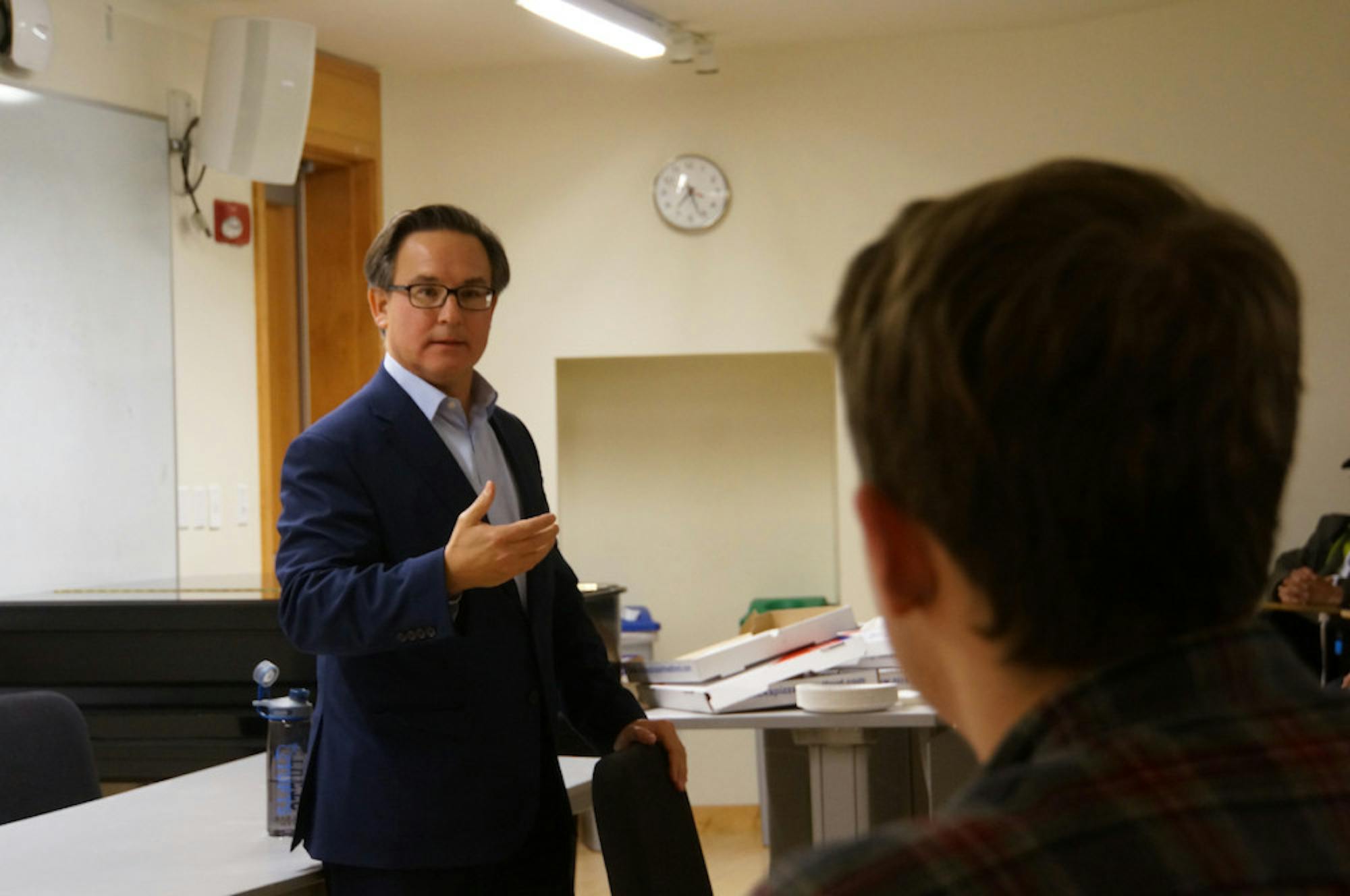Disclaimer: Aneurin Canham-Clyne is a staff writer at the Daily. He was not involved in the production of this article.
Tufts Democrats held a symposium entitled "The Future of the Left" to discuss why Democratic presidential candidate Hillary Clinton did not win the 2016 election cycle and how progressives can become more successful in the future. The event took place in the mostly-full Varis Lecture Hall in Granoff Music Center on Thursday night.
It opened with a panel discussion including representatives from Tufts Labor Coalition (TLC), Tufts Climate Action (TCA) and the Tufts chapter of Amnesty International. Senior Ben Kaplan, president of the Tufts Democrats, moderated the discussion.
Sophomore Aneurin Canham-Clyne from TLC argued that the Democratic Party did not fare well because Clinton was treated by party elites as though she was entitled to be president. Canham-Clyne was also critical about how little the Obama administration had achieved. He suggested that moving forward, the party should organize on a grassroots basis and develop leaders from within rather than rely on elites.
"Anyone whose life became more precarious in the last eight years would have no reason to vote for the Democratic Party unless it offered them a radical, material vision for the improvement of their lives," Canham-Clyne said.
Senior Shana Gallagher of TCA said that many politicians are more beholden to corporate interests than to voters, which has prevented important issues such as climate change from being discussed seriously. For that reason, she concluded that campaign finance reform is a crucial first step to making politicians more accountable to voters.
"We're not going to be able to make progress on any of our various social justice causes as long as democracy isn't functioning the way it's supposed to," Gallagher said.
Emma Plankey, a junior from the Tufts chapter of Amnesty International, agreed that progressives should work to combat conservative rhetoric, but she also urged for more open dialogue. She said that progressives need to listen to voters' opinions, offer them a strong message and follow up with concrete actions.
"I feel like the Obama administration said 'yes, we hear you, we are concerned about your issues' and then didn't do anything," Plankey said. "That created this sense of being heard and not cared about, which is almost worse than not being heard."
The panelists disagreed somewhat on how the progressive movement should improve its voter turnout. Plankey argued that the Democratic Party should avoid alienating centrist voters. In contrast, Canham-Clyne said that the focus should be on people who are currently not voting due to disillusionment and Gallagher urged the party to fight voter suppression.
After the discussion, panelists took questions from members of the audience.
The second part of the symposium was a keynote speech by Simon Rosenberg (LA '85), founder of the New Democrat Network, member of the Tisch College Board of Trustees and former candidate for Democratic National Committee Chair.
Rosenberg said that he did not share the same frustrations as the panel speakers, as the Democrats have won the popular vote in six out of the last seven presidential elections.
“There are just more of us than them … there are more people that identify as Democrats than Republicans,” Rosenberg said.
Rosenberg argued that this election was not a rejection of the Democratic Party and that the situation was actually much more complicated.
According to Rosenberg, Clinton lost the presidency because her campaign was poorly run. Rosenberg argued that Clinton did not campaign enough, and because she was off the trail for about 25 days during the last 10 weeks in the election, she was unable to build a direct connection to her supporters.
“They blew this election,” he said. “The Hillary campaign screwed up. They misread what was happening on the ground.”
He also disagreed with the panel speakers' critical assessment of Obama's presidency and said that the Democrats often do not give Obama enough credit.
“Obama has not been anything but a good president,” he said.
Rosenberg argued that the challenges facing Obama when he came to office were the largest any president has had to deal with. He pointed out that since Obama has been in office, the unemployment rate has decreased to 4.6 percent, net incomes have been rising since 2013, the deficit has been halved, the stock market is at an all-time high and the crime rate is down.
Rosenberg concluded his speech by insisting that, moving forward, the country has to be focused on the economy, security, political reform and policy renewal. He encouraged all students to view the glass as half full rather than half empty, saying that there is still a path forward for the Democratic Party.
“We are not dead yet,” he said.
After the speech, Rosenberg took questions from members of the audience.
Tufts Democrats holds discussion on future of progressive movement






